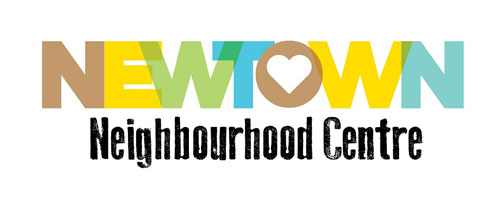Newtown Neighbourhood Centre
In light of everything that is going on and the new government restrictions our staff are often asked: How do you even do a job like yours remotely?
I caught up with Mischa, one of the Team Leaders from our Boarding House Outreach Service (BHOS), who explained that “our case managers are actually finding themselves busier than expected as the needs of their clients are becoming higher and more complex due to not being able to see them in person”.
During the first few weeks of the shutdown, our social workers conducted an audit of which clients had phones or needed credit and which ones didn’t have a phone so one could be arranged.
“Some of our clients were resistant and couldn’t understand why we couldn’t continue to visit them in their homes, so while it doesn’t substitute the service we would normally provide, the calls are vital to maintaining that lifeline and support”.
“With our older clients it presented even further challenges as many don’t have basic technology literacy skills, so even the task of teaching them how to use phones took up several days,” says Mischa.
The next priority was to ensure our clients had access to all those necessities that were running out of supermarkets at a fiercely rapid rate.
We know that without soap and toilet paper any disease is likely to run rampant, which would be disastrous in a boarding house as many residents have compromised immune systems or pre-existing conditions.
Unfortunately as a consequence of the bulk buying and lack of basic supplies landlords stopped supplying these items within their boarding houses. During those early weeks, and now on a regular basis, the team drops hampers with soap and hand sanitisers, along with posters to encourage proper and regular hand washing.
Like any accommodation type with shared spaces and facilities, it’s virtually impossible to practice safe physical distancing or self-isolation. Paradoxically, you can also feel really alone and desperate when your usual network is cut-off and you’re forced to spend all day confined mostly to just one room, with no internet access or multiple entertainment options.
Restricting human interaction for those who’ve experienced chronic social isolation can certainly exacerbate existing mental health conditions or even create new ones. In some cases old demons and addictive habits have resurfaced as a coping mechanism.
“One client remarked that he’s sinking into depression and drinking a lot more than he normally would,” shared one of the case managers, Tamara.
“And although increased drinking appears to be a trend among the general public, for an individual already marginalised and living in inadequate and often unhygienic accommodation it is a massive concern”.
There have also been instances when our case managers have had no other choice but to physically be there for their clients, as many have chronic medical conditions that require ongoing consultation with doctors or tests.
“Our staff are certainly putting themselves at risk at times by having to take clients to vital appointments,” highlights Mischa.
Despite this our team are adapting to this new way of working and finding the silver linings in every situation.
“I’ve had two clients, living in different boarding houses, who have both introduced me to another resident with whom they’ve bonded during isolation. They are helping one another in both practical ways and as moral support,” says Tamara.
This just goes to show how important those personal connections are and I hope during these times you are looking after yourself and your loved ones.
We have some exciting things happening behind the scenes with our team and our wonderful crew of Newtopian Outreachers and I look forward to sharing that with you soon.
Stay well.
NNC Boarding House Outreach Service Team and Mel

To find out more about the great work NNC is doing in their community, visit their website newtowncentre.org
This LCSA Member Story was published with permission from Netwown Neighbourhood Centre (NNC).